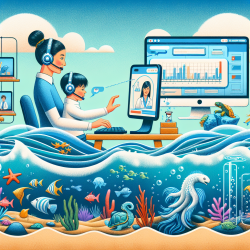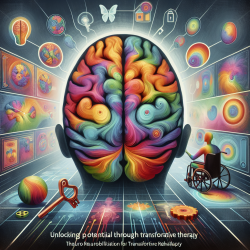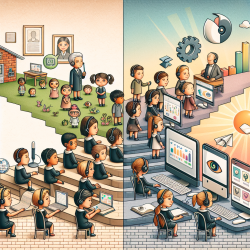Introduction
At TinyEYE, our commitment to providing superior online therapy services is driven by data and research. A recent study titled Centers for Oceans and Human Health: contributions to an emerging discipline offers significant insights that can be leveraged to enhance our therapy services. This blog will discuss how practitioners can apply the findings of this research to improve outcomes for children and encourage further exploration in this vital field.
Understanding the Research
The study emphasizes the intricate link between ocean health and human health, highlighting various biological, chemical, and physical risks associated with ocean environments. It also discusses the potential benefits of marine resources, such as nutritional value and recreational opportunities. Importantly, the research outlines interdisciplinary approaches to monitoring and mitigating risks, such as microbial pathogens and harmful algal blooms (HABs).
Applying Research Insights to Online Therapy
While the connection between ocean health and speech-language pathology may not be immediately apparent, several principles from the study can be adapted to improve online therapy services:
- Interdisciplinary Collaboration: Just as the study promotes collaboration across various scientific disciplines, online therapy can benefit from a multidisciplinary approach. Involving educators, psychologists, and healthcare professionals can create a more holistic therapy plan for children.
- Data-Driven Decisions: The research underscores the importance of using data to predict and mitigate health risks. Similarly, online therapy should leverage data analytics to tailor interventions based on individual progress and outcomes.
- Early Intervention: The study's focus on early detection and prevention of health risks can be mirrored in early intervention strategies for speech and language disorders. Identifying issues early can lead to more effective treatment and better long-term outcomes.
- Technological Integration: The use of advanced molecular assays and remote sensing in the study can inspire the integration of cutting-edge technology in online therapy. Tools like AI-driven assessments and virtual reality can enhance the therapy experience and effectiveness.
Encouraging Further Research
The study's findings also serve as a call to action for practitioners to engage in ongoing research. Understanding the broader environmental factors that influence health can lead to more comprehensive and effective therapy methods. Practitioners are encouraged to stay updated with the latest research and consider how interdisciplinary findings can be applied to their practice.
Conclusion
Incorporating insights from the Centers for Oceans and Human Health research can significantly enhance online therapy services at TinyEYE. By fostering interdisciplinary collaboration, making data-driven decisions, focusing on early intervention, and integrating advanced technology, we can create better outcomes for children. To read the original research paper, please follow this link: Centers for Oceans and Human Health: contributions to an emerging discipline.










